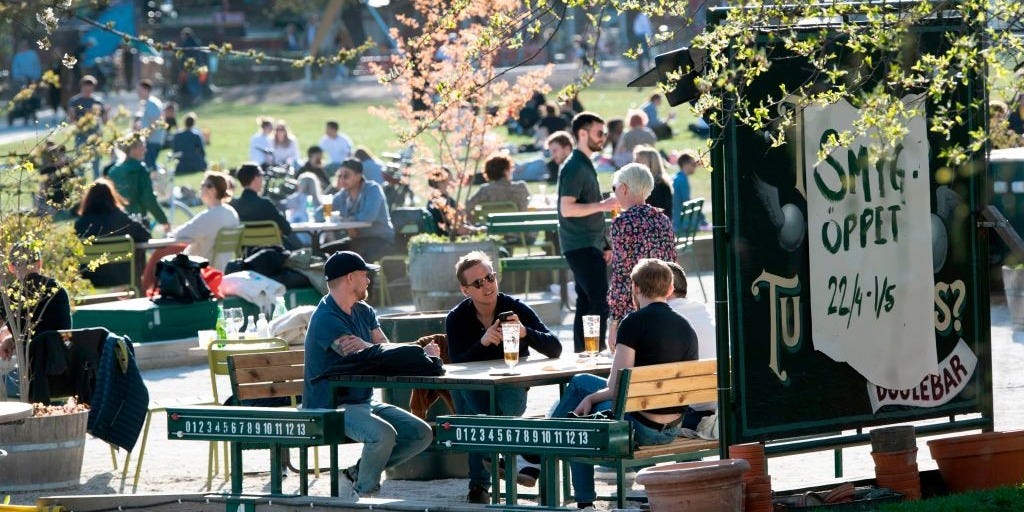- Throughout the coronavirus pandemic, Sweden has drawn international attention for its unorthodox approach to managing the virus.
- The country never imposed a strict lockdown like most European countries and is now reaping, economically speaking at least, the rewards.
- A report from research firm Capital Economics published Tuesday shows that the Swedish economy is the least negatively impacted in Europe, and is the “best of a bad bunch.”
- Although Sweden was not immune to the virus’ economic impact, it was the only major economy to grow in the first quarter of the year, the report noted.
- Visit Business Insider’s homepage for more stories.
Throughout the coronavirus pandemic, Sweden has drawn international attention for its unorthodox approach to managing the virus.
The Nordic state never imposed a formal lockdown, but instead asked citizens to stay home when sick and practice social distancing in public. Bars, restaurants, and shops all stayed open, even during the peak of cases in the country.
Its unusual coronavirus strategy, relying on personal responsibility and wilful obedience, has been received with both praise and skepticism for its relaxed pandemic public health stance.
And while the jury is still out on the country’s public health approach to the virus, there is growing evidence that economically speaking, the loose rules seem to have worked.
A report from research firm Capital Economics published Tuesday shows that the Swedish economy is the least negatively impacted in Europe, and is the "best of a bad bunch."
Although Sweden was not immune to the virus' economic impact, it was the only major economy to grow in the first quarter of the year, the report noted.
"The Swedish economy has weathered Covid well, thanks in part to the government's light-touch lockdown, and our forecast of a 1.5% drop in GDP this year is well above consensus," economists from Capital Economics wrote.

As a group, Nordic economies seem to have weathered the COVID-19 storm better and "got off lightly" compared to anywhere else in the world, the report written by economists Andrew Kenningham, David Oxley, and Melanie Debono showed.
"A combination of decisive policy responses and structural factors" will limit the damage brought on by the virus in the Nordic economies - particularly relative to the euro-zone," the economists wrote.
"Nonetheless, policymakers will not rest on their laurels and tighter policy is years away."
Even so, the inevitable consequences of COVID-19 will persist and activity across Nordic economies are likely to remain below the pre-virus trend for the rest of the year, Capital Economics said.
Economic output - total value of goods and services produced - in Denmark and Norway would fall by only about 3% this year, while Sweden is set for an even smaller contraction, the research house predicted.
Below are short descriptions on the state of Nordic economies provided by Capital Economics:
- Sweden - "Best of a bad bunch in Europe."
- Norway - "Bouncing back, but energy shake-out to constrain growth."
- Denmark - "Quick lockdown exit helps to limit slump."

